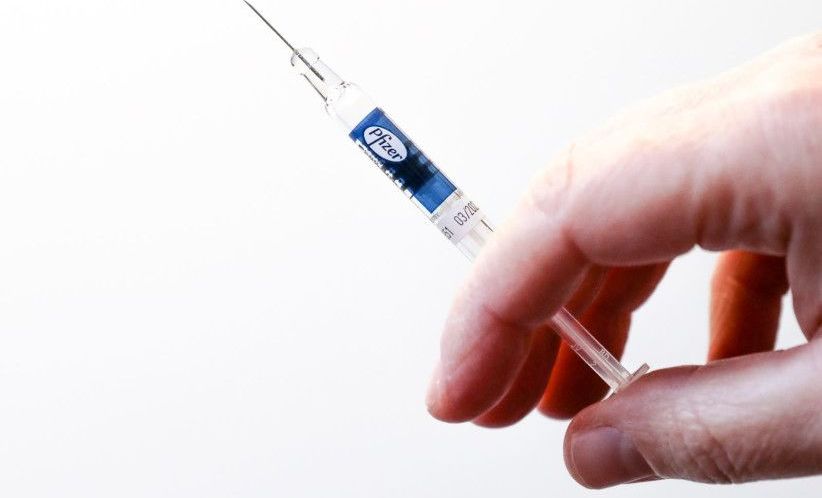Let’s face it. Software has holes. And hackers love to exploit them. New vulnerabilities appear almost daily. If you have software — we all do — you need to keep tabs on the latest vulnerabilities.



A new article in Science magazine gives an overview of almost three decades of research into colloidal quantum dots, assesses the technological progress for these nanometer-sized specs of semiconductor matter, and weighs the remaining challenges on the path to widespread commercialization for this promising technology with applications in everything from TVs to highly efficient sunlight collectors.
“Thirty years ago, these structures were just a subject of scientific curiosity studied by a small group of enthusiasts. Over the years, quantum dots have become industrial-grade materials exploited in a range of traditional and emerging technologies, some of which have already found their way into commercial markets,” said Victor I. Klimov, a coauthor of the paper and leader of the team conducting quantum dot research at Los Alamos National Laboratory.
Many advances described in the Science article originated at Los Alamos, including the first demonstration of colloidal quantum dot lasing, the discovery of carrier multiplication, pioneering research into quantum dot light emitting diodes (LEDs) and luminescent solar concentrators, and recent studies of single-dot quantum emitters.

The physicians group identified the use of the chemicals in at least 1200 wells in six states, not including Pennsylvania.
The Inquirer’s editorial board identified the use of PFAS in eight fracking wells. Only the Pennsylvania Department of Environmental Protection can shed light on the full scope.



We’re heading northwest for the 11th flight of NASA’s Ingenuity Mars Helicopter, which will happen no earlier than Wednesday night, Aug. 4. The mission profile is designed to stay ahead of the rover – supporting its future science goals in the “South Séítah” region, where it will be able to gather aerial imagery in support of future Perseverance Mars rover surface operations in the area.
Here is how we plan to do it: On whatever day the flight takes place, we will start at 12:30 p.m. local Mars time (on Aug. 4, this would be 9:47 p.m. PDT/Aug. 5, 12:47 a.m. EDT). Ingenuity wakes up from its slumber and begins a pre-programmed series of preflight checks. Three minutes later, we’re off – literally – climbing to a height of 39 feet (12 meters), then heading downrange at a speed of 11 mph (5 meters per second).
And while Flight 11 is primarily intended as a transfer flight – moving the helicopter from one place to the other — we’re not letting the opportunity go to waste to take a few images along the way. Ingenuity’s color camera will take multiple photos en route, and then at the end of the flight, near our new airfield, we’ll take two images to make a 3D stereo pair. Flight 11 – from takeoff to landing –- should take about 130 seconds.
Driver Clocks And Longevity — Dissecting True Functional “Drivers” Of Aging Phenotypes — Dr. Daniel Ives Ph.D., Founder and CEO — Shift Bioscience Ltd.
Dr. Daniel Ives, Ph.D. is Founder and CEO of Shift Bioscience Ltd. (https://shiftbioscience.com), a biotech company making drugs for cellular rejuvenation in humans through the application of machine-learning ‘driver’ clocks to cellular reprogramming, and is the scientific founder who first discovered the gene shifting targets upon which the Shift drug discovery platform is based.
Dr. Ives graduated from Imperial College with a degree in biochemistry and gained his PhD in 2013 working at the MRC Mitochondrial Biology Unit in Cambridge. He carried out his post-doctoral studies under Ian Holt at the National Institute of Medical Research in Mill Hill, now part of the Crick Institute, pursuing damage-removal strategies for mitochondrial DNA mutations.
In 2016 Dr. Ives left the Crick Institute and founded Shift Bioscience to commercialize mitochondrial targeted drugs for age linked diseases, incorporating novel ageing biomarkers technologies, CRISPR screens, and other tools to dissect true functional ‘drivers’ of ageing phenotypes.
Commercial Sauna Vs Home Sauna.
The last year has turned all our worlds upside down.
Even if we had our diet, exercise and sauna routine locked down before, suddenly all the venues were closed, or we did not feel comfortable visiting them as they were too crowded and too enclosed.
But we can sauna at home these days, and it is relatively affordable, but are they as good as the commercial saunas we had been using?
Are sauna tents worth the money?
Are portable steam saunas, and infrared saunas as good as the professionally installed home saunas that cost a fortune, and are either of them as good as the ones we used to visit that are run commercially as established premises with all the benefits they offer?
Well, in an attempt to answer these questions, I have looked at all the pros and cons of both and dissected them to try and help you make that decision.
Whether you are rich or poor, I have considered your options and attempted to answer those questions.
So follow me, as we take a stroll into the wonderful world of getting a bit sweaty… and all so we can live longer and healthier.

A licensed drug normally used to treat abnormal levels of fatty substances in the blood could reduce infection caused by the SARS-CoV-2 virus by up to 70 percent, reveals a study in the laboratory by an international collaboration of researchers.
The research team, led by the University of Birmingham and Keele University in the UK and the San Raffaele Scientific Institute in Italy, has demonstrated that fenofibrate and its active form (fenofibric acid) can significantly reduce SARS-COV-2 infection in human cells in the laboratory. Importantly, reduction of infection was obtained using concentrations of the drug which are safe and achievable using the standard clinical dose of fenofibrate. Fenofibrate, which is approved for use by most countries in the world including the US Food and Drug Administration (FDA) and the UK’s National Institute for Health and Care Excellence (NICE), is an oral drug currently used to treat conditions such as high levels of cholesterol and lipids (fatty substances) in the blood.
The team is now calling for clinical trials to test the drug in hospitalized COVID-19 patients, to be carried out in addition to two clinical trials also currently underway in such patients in research being led by the Hospital of the University of Pennsylvania in the US and Hebrew University of Jerusalem in Israel.

The Pfizer coronavirus vaccine may be linked to a form of eye inflammation called uveitis, according to a multicenter Israeli study led by Prof. Zohar Habot-Wilner from Tel Aviv’s Sourasky Medical Center.
The research was conducted at Rambam Health Care Campus, Galilee Medical Center, Shaare Zedek Medical Center, Sheba Medical Center in Tel Hashomer, Kaplan Medical Center and Sourasky. It was accepted for publication by the peer-reviewed ophthalmology journal Retina.
Habot-Wilner, head of the Uveitis Service at the hospital, found that 21 people (23 eyes) who had received two shots of the Pfizer vaccine developed uveitis within one to 14 days after receiving their first shot or within one day to one month after the second.